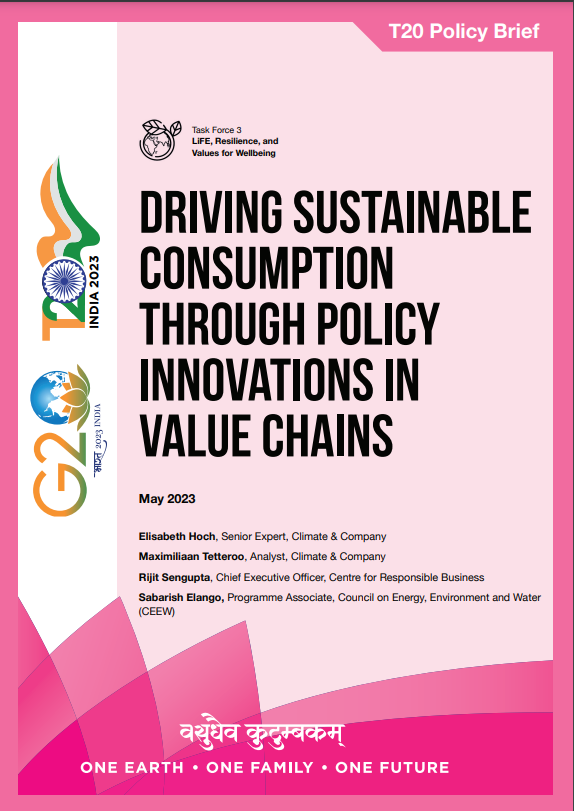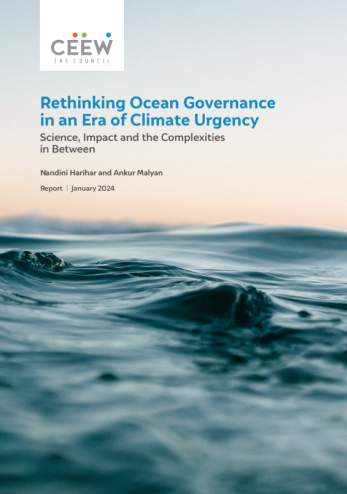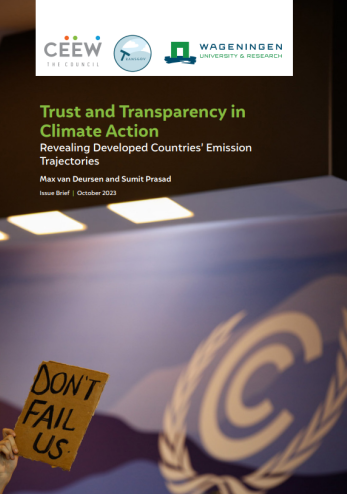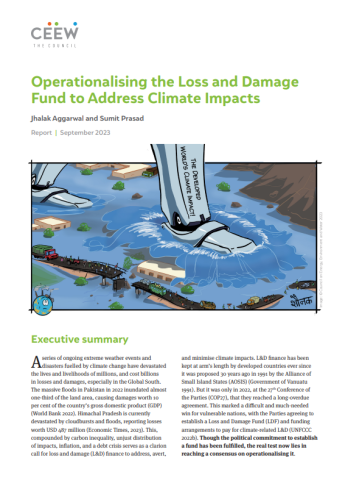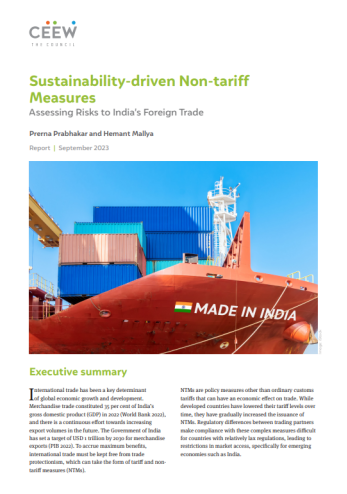Policy Brief
Driving Sustainable Consumption through Policy Innovations in Value Chains
Elisabeth Hoch, Maximiliaan Tetteroo, Rijit Sengupta and Sabarish Elango
May 2023 | International Cooperation
Suggested citation: Hoch, Elisabeth, Maximiliaan Tetteroo, Rijit Sengupta, and Sabarish Elango. 2023. Driving Sustainable Consumption through Policy Innovations in Value Chains. T20 Policy Brief.
Overview
This paper, published by the T20 India Task Force, discusses the need for policy interventions in value chains to increase the availability and consumption of more sustainable products. Consumers are increasingly interested in buying sustainably produced products. However, the supply of such products and services remains limited and is restricted. This 'intent-action gap' needs to be addressed to achieve the goals of Mission LiFE.
Key Highlights
- The market for sustainable products remains limited, despite the increase in consumer preference for sustainable products. Consumers’ awareness of sustainability issues and their intentions to buy sustainable products have not significantly impacted sustainable purchasing.
- The proliferation of sustainability labels and claims in some markets confuse consumers and increase the possibility of 'greenwashing' by businesses. Adoption of sustainability standards that include in-built traceability systems can support the credibility of such labels and claims, alongside coordinated regulatory action against greenwashing.
- Regulations in advanced economies to foster sustainable value chains may cause SMEs and small farmers to be further excluded from international markets. More formalised and financially beneficial roles can be created for such local actors to produce and certify sustainable goods at the grassroots level. This will allow the entire value chain to participate in sustainability without acutely disadvantaging the grassroots-level livelihoods.
- Consumption-based emissions (CBE) accounting can enable more equitable changes in lifestyles by reducing the burden of sustainable decision-making on consumers whose overall consumption is already low. Digital product passports (DPPs) can be introduced, which track the sustainability credentials of a product throughout its value chain for informing the consumer. By combining DPPs and data from consumer behaviour, CBE accounting can be realised.
Policy Recommendations
The G20 can consider:
- Creating an open-source international repository of good practices by businesses on sustainable consumption (this could be added as a 'new' indicator under SDG Target 12.6.2 (encourage companies, especially large and transnational companies, to adopt sustainable practices and to integrate sustainability information into their reporting cycle).
- Adopting a common policy for introducing DPPs for key consumer goods by developing common sustainability indices for products based on local emissions inventories. This policy can be expanded in the future to include services.
- Supporting the creation of a broad data collection, processing, and reporting framework for CBE accounting at an individual level, while ensuring that privacy and freedom of choice are respected and protected.
- Creating a long-term policy for equitable action on demand-side management for consumption practices by utilising the CBE framework to nudge and disincentivise high (material and energy) intense consumption.
- Enabling local actors to be involved in the process of development, implementation, and review of international legislation on sustainable global value chains. For example, integrate local verification of information within the application guidance for sustainability related (ESG) reporting.
- Supporting national market regulators (competition and consumer protection agencies) with a set of international 'guidelines' to address 'greenwashing'.
Additionally, the G20 working groups and engagement groups can consider:
- Strengthening the role and benefits of local actors upstream for effective global supply chain legislations (Trade and Industry Working Group, Sherpa Track.
- Creating participatory and traceable standards to help track specific Sustainable Development Goals (SDGs) (Development Working Group, Sherpa Track).
- Encouraging individual accountability using emission accounting (the G20's Mission LIFE agenda).
- Enhancing the credibility of claims and action against greenwashing (the G20's Mission LIFE agenda).
"The G20 countries can work together to incentivise sustainable consumption practices, shift consumption patterns, and reform consumption and production behaviour by driving policy innovations in global value chains."




